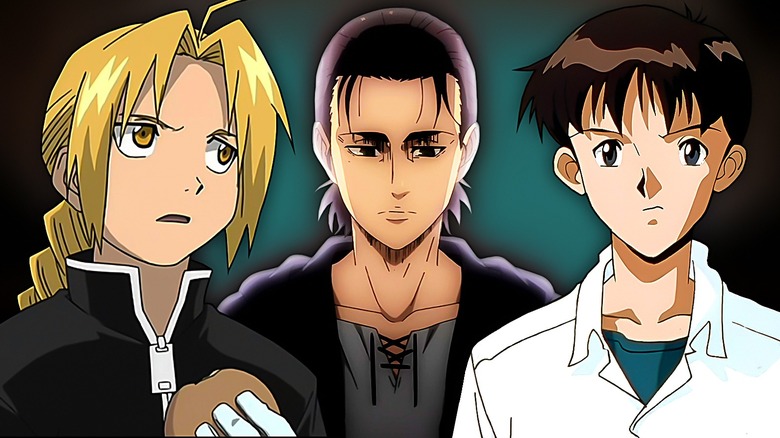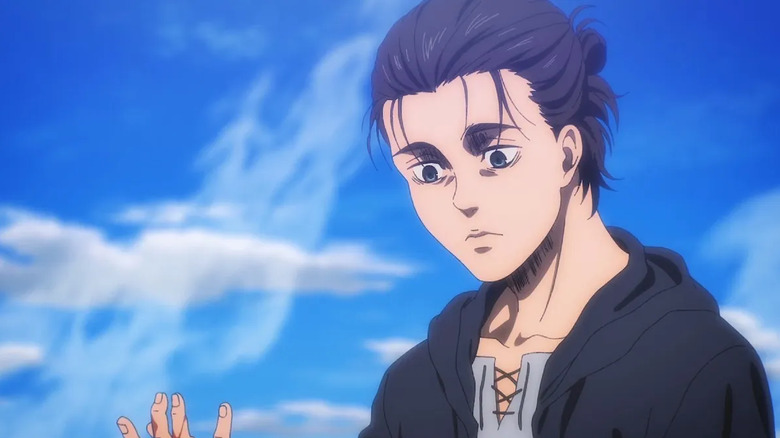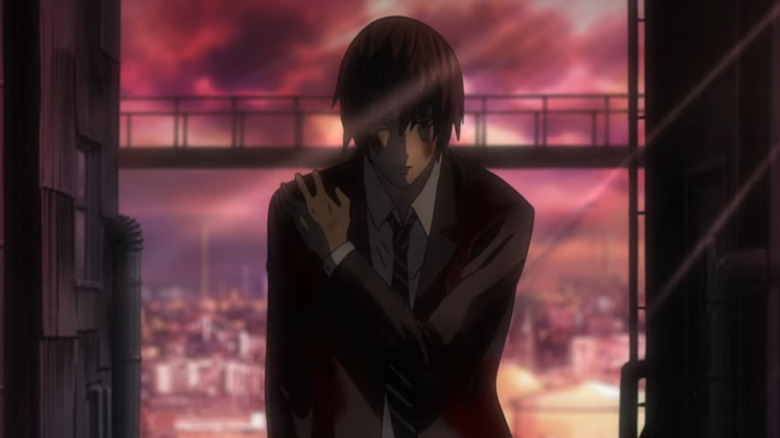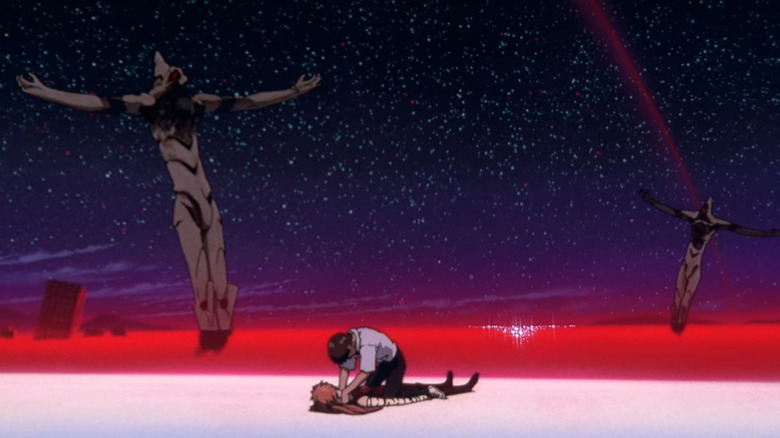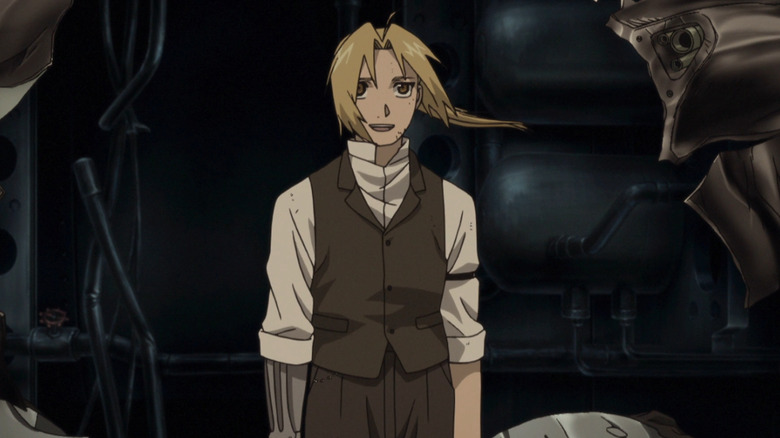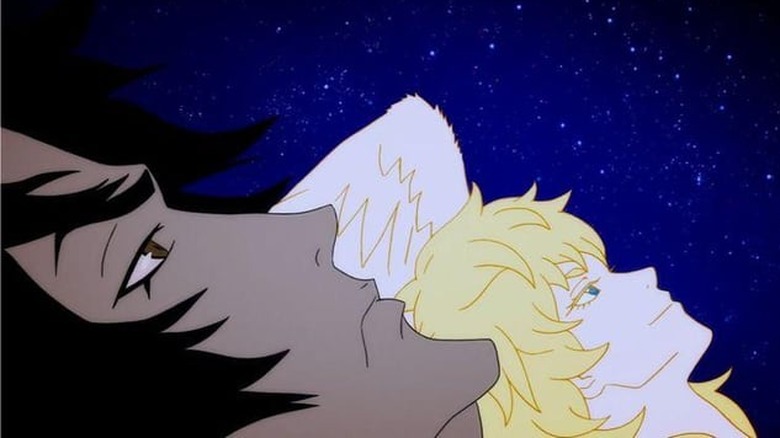5 Controversial Anime Endings Fans Will Never Forget
Many creators and fans would argue that the ending is the most important part of a great story. Unfortunately, as the reactions to the conclusions of prolific series like "Game of Thrones" and "Lost" show, the hype train can come to a grinding halt if many viewers agree that a series finale doesn't live up to what came before it.
Of course, anime isn't immune to this phenomenon. Some of the biggest shows in the history of the medium have had endings that split their fanbases, with some embracing the way they wrapped things up and others left scratching their heads or, even worse, fuming with rage.
The popular horror fantasy series "Attack on Titan" is probably the most notable example of this at the time of writing, being that the show wrapped up in late 2023. Still, there are many other instances of Japanese animation that have left fans wanting, and we're going to explore five of them in detail right here. Please note that this article is obviously going to be entering spoiler territory because this list covers the finales of some very popular anime series.
The end of Attack on Titan split fans considerably
Considering the fact that "Attack on Titan" was clearly alluded to above, one will likely be unsurprised to find it on the list. While the series riveted fans for its first three seasons, it began to lose some of its luster for some of the show's devotees during the fourth and last.
This began with an extended series of "Attack on Titan" episodes that explored the motivation of the show's villains in Marley, leaving most main cast members to the side for the first five episodes. Later, fans' problems with The Final Season were compounded by a time loop that changed everything about the nature of the story.
Though the setup for the last episodes of Season 4 was strong enough, with protagonist Eren Yeager (Yuki Kaji/Bryce Papenbrook) unleashing the world-changing devastation of The Rumbling and becoming the worst villain in the entire series, many fans also found the final episode to be underwhelming.
While the anime made some changes to how things unfolded in the ending of "Attack on Titan," many fans were still left cold by the way that the show ultimately wrapped up, meaning that for some, there will always be a black mark on the otherwise mega-popular and well-received series.
Death Note wraps up with a different conclusion from the manga
When it comes to anime series from the '00s, few have as strong of a reputation as "Death Note." The adaptation of Tsugumi Ohba and Takeshi Obata's manga is sitting pretty at a stellar 100% score on Rotten Tomatoes, marking it as not just one of the best-reviewed anime of its era but of all time.
However, that doesn't mean that fans don't have any gripes about the series. One that pops up regularly is the way that the "Death Note" anime diverges from the manga in terms of how its central character, Light Yagami (Mamoru Miyano/Brad Swaile), goes out when he finally gets his well-deserved comeuppance.
While he is fatally shot at the end of both versions of the story, followed by Ryuk (Shidou Nakamura/Brian Drummond) writing his name on the Death Note, the anime gives Light a much less embarrassing death. In the manga, when Light finally loses the game, he also drops his calm and cool facade and becomes a jibbering, pathetic mess who needs to be put out of his misery.
Meanwhile, the anime has him flee the warehouse where the story wraps up and grants him more of a serene, respectful death. It might seem like a small change, but many fans rejected the new "Death Note" ending, arguing that it's important to see how Light/Kira is just as afraid of death as anyone else.
The original Neon Genesis Evangelion finale baffled fans
Though "Neon Genesis Evangelion" is commonly seen among anime royalty as one of the best examples of its genre ever created, the story fizzled out a bit when it came to the series' final two episodes. This is because the show famously blew its budget on the incredible fights between its mecha-organic Evas, leading to director Hideaki Anno having to get creative with the ending.
As The Human Instrumentality Project is triggered at the tail-end of "Neon Genesis Evangelion," the anime begins to show the psyche of the show's central characters as they deal with the inevitable end of the world. However, due to the budget restrictions, this was mainly showcased through the minds of the protagonists, leading to an artsy, if unsatisfying, conclusion.
Luckily, fan pushback led to "End of Evangelion," a new ending that showed the apocalyptic finale of the series in all of its glory. With thrilling action scenes, stellar animation, and a more resonant ending to the beloved series that tied up the loose threads for its characters, it would become the definitive finale of "Neon Genesis Evangelion."
This is so much the case that some fans argue that first-time viewers should skip the final two episodes of the anime altogether and simply watch the recap film "Neon Genesis Evangelion: Death & Rebirth," followed by "End of Evangelion." Considering that the series only ran for 26 episodes, that's a pretty damning assessment, but at least fans finally got a more worthwhile conclusion to the series.
Fullmetal Alchemist deviated pretty far from the source material
Like with "Neon Genesis Evangelion," the original ending for "Fullmetal Alchemist" was incredibly divisive. Deviating heavily from the original conclusion of the manga, the first series sees Edward Elric (Romi Park/Vic Mignogna) seemingly transferred to our own world during World War II.
It's a jarring ending that left many fans scratching their heads, even though it does inevitably wrap up the central story threads of the series. Still, the dissatisfaction that many manga fans would feel for "Fullmetal Alchemist" would inevitably lead to the creation of a new series called "Fullmetal Alchemist: Brotherhood."
The cast and crew of the original series had a good reason for making the changes, however, as the manga was still being produced while "Fullmetal Alchemist" was airing. This forced director Seiji Mizushima to deviate and create the remaining story on his own or take a years-long hiatus while the manga wrapped things up.
In the end, the second adaptation stuck much closer to the original story by Hiromu Arakawa, leaving aside the many changes from the first series. While fans still debate which is the superior "Fullmetal Alchemist" ending, the fact that viewers can choose the conclusion that suits them best means everyone wins in the end.
Devilman Crybaby has one of the most bleak endings ever
Fans of "Attack on Titan" and "Neon Genesis Evangelion" might think that no anime endings can possibly be more apocalyptic. However, as anyone who has seen "Devilman Crybaby" will know, that assumption is incorrect. While both aforementioned shows ended with devastating repercussions, the Netflix series went about as far as you can go with its brutal series finale.
At the end of "Devilman Crybaby," it is revealed that Ryo (Ayumi Murase/Kyle McCarley) is actually the fallen angel Satan and that he has been manipulating the events of the series since the start. This leads to a devastating final battle between Akira (Koki Uchiyama/Griffin Burns) and Ryo that is so destructive that it leaves Earth as a wasteland of death with seemingly no survivors.
Even for a mature anime like "Devilman Crybaby," this is an awfully bleak outcome. The final scene sees Ryo embracing the corpse of Akira before the credits roll, suggesting that the world has ended in the show's finale. It's a jaw-dropping conclusion, especially considering that "Devilman Crybaby" is only 10 episodes long and starts off, for the most part, like a typical seinen series.
While there are countless other examples of controversial anime endings like "Naruto: Shippuden," "The Promised Neverland," and "Darling in the Franxx," the above examples are definitely a regular part of the discussion when it comes to series finales that left many fans wanting.
